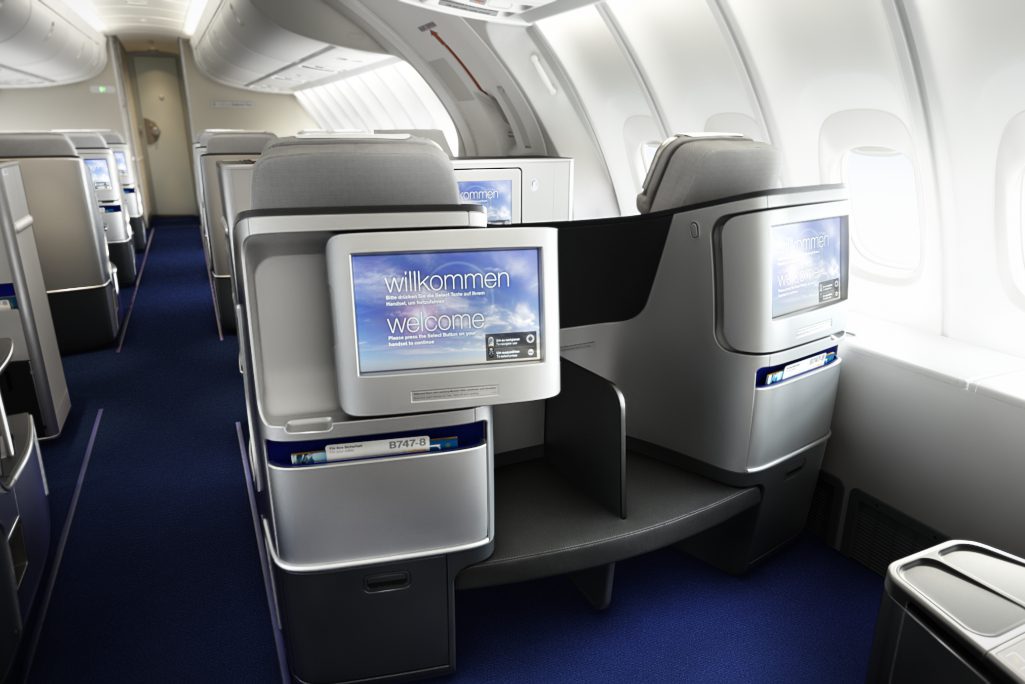Skift Take
Lufthansa appears to be playing well what could've been a weak hand in its negotiations with distribution middlemen. But this deal also may help tech player Travelport level the playing field with some of its rivals.
Lufthansa and Travelport said on Tuesday they had agreed to a revamped distribution deal for airline tickets and related services. The UK-based Travelport is the second of the travel distribution technology players to access the group’s full content after U.S.-based rival Sabre signed a deal last December.
“We’ve concluded a really far-reaching agreement that encapsulates all the values that are important to us,” said Tamur Goudarzi Pour, senior vice president channel management at Lufthansa Group network airlines and chief commercial officer of Swiss. “Not just talking commercial, but also the content element and the set up of the contract, and guarantees for everything partners [agencies] need in terms of servicing [such as handling ticket changes].”
Until recently, Lufthansa had withheld some content at favorable commercial terms for partners who connected directly with its computer systems. For example, it continues to add a surcharge for content delivered via Madrid-based Amadeus, the largest of the three global distribution systems. Since 2015, Lufthansa Group has led a series of airline commercial, technological, and legal maneuvers to try to change how Amadeus, Sabre, and Travelport display and distribute its tickets and upsells, such as roomier seat upgrades, via travel agencies to travelers.
Like everything distribution-related, the deal is complicated. Here are apparent distinctive aspects.
Join Us at Skift Global Forum in NYC September 21-23
Since October 2020, Lufthansa Group has slapped a $21 fee in the U.S. (€19 in Europe) surcharge on tickets bought outside of its own channels.
If you’re a Travelport affiliated travel agency that wants access to Lufthansa Group’s basic fares in the same workflow as other tickets, but you don’t need every possible thing from Lufthansa because, say, you’re based in Iowa instead of Bavaria, you can opt as an agency for a “basic” or “public” model. As an agency, your tickets will have a reduced surcharge, which will be roughly half the standard surcharge, Goudarzi Pour said.
The benefit of this “public” model, besides a reduced fee, is that agencies no longer have to go through a separate workaround via Lufthansa’s direct channels to book and service a ticket as they do today.
Agencies that instead want everything that Lufthansa offers can opt to sign a new contract with both Lufthansa and Travelport. These “special” partners that sign bilateral agreements can avoid any surcharge.
“This deal sets the stage for tailor-made, individual contracts for large customers,” Goudarzi Pour said. “We have all the preconditions. The shelves are there, and we have to fill them with the right content for each of these models. The deal includes special types of ancillary fares at prices that we have agreed to tailor-make for select customers.”
The commercial terms by which bilateral partner agencies are compensated will also be different from the traditional commissions that technology players have provided agencies in as-yet-unpublicized ways.
“The content and commercial terms are things we will communicate at a later stage,” Goudarzi Pour said. “In short, the market will decide. We will get all of our offers to the right customer if we see the competitive need for it and we see that this customer requires it. Very clearly a top agency will understand what it gets from us. There is a natural interest on our side as an airline to have the best offer out there in the bilateral agreements with the best customers.”
Agencies that prefer to have things the way they’ve always been can continue to receive content via the traditional format, known by the shorthand for the programming language Edifact. But these agencies pay the full surcharge and don’t get access to special content Lufthansa said it offers via the new distribution paths, such as so-called continuous, or dynamic, pricing. The latter means that, in theory, at any given moment, Lufthansa might release offers-based dynamic pricing that may disappear when the moment passes. So companies like Travelport are switching from using the language of providing “full content” to providing “competitive content.”
Travelport will deliver all of Lufthansa Group’s content either through its desktop user interface for travel agencies, Smartpoint, or through data feeds it recently launched that are faster and which it has essentially branded Travelport Plus.
“You can shop by brands or attributes much more richly than historically was possible,” said Jason Clarke, chief commercial officer, travel partners at Travelport.
“A travel agency can get access through Travelport for content that’s competitive with what Lufthansa distributes through their other channels. The bilateral agreements include the equivalent of private fares, and they vary.”
The rollout will unfold in stages, achieving end-to-end functionality for Austrian Airlines, Brussels Airlines, Lufthansa, Swiss, and Air Dolomiti in the first half of 2022.
“Agencies that want the public model can sign up to take the NDC content and we’ll put it on the platform and they won’t necessarily have to sign any new contracts,” Clarke said. “Overall, our job is to be the best multi-source aggregator of content.”
The Daily Newsletter
Our daily coverage of the global travel industry. Written by editors and analysts from across Skift’s brands.
Have a confidential tip for Skift? Get in touch
Tags: distribution, gds. global distribution systems, gdses, lufthansa, Lufthansa Group, travelport
Photo credit: Lufthansa Business Class on a Boeing 747-8. Lufthansa
